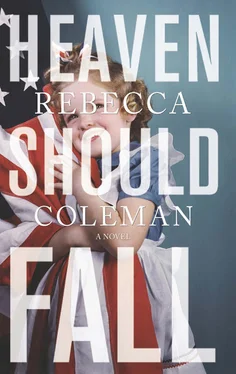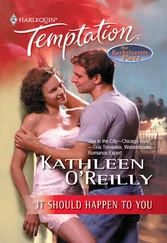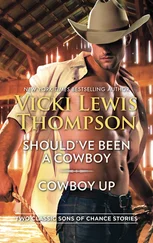I kept thinking about all that—the person I’d been back then, the person I was now. I kept telling myself I needed to reapply for work-study, hit the deadline this time, but I couldn’t find the heart to do it. Every time I sat down to work on it I pictured a thin letter declining my application, something with “Dear Applicant” at the top, and I’d push the whole thing away like a plate of food I couldn’t eat. If my school rejected me now, I knew I’d lose it. I wasn’t even sure that I hadn’t lost it already.
One weekend—it was a Saturday, the day we played Memphis—I gathered up all the stuff from the box in the shed and drove it out to the quarry, just as I’d promised Jill. I hadn’t been exactly honest with her when I told her it was all leftovers from high school. It was true we used to set off fireworks there a lot, but that wasn’t what she’d asked. I didn’t want to tell her I’d been experimenting with a few ideas, in the beginning as a challenge to Dodge. He had all these screwy, amateurish concepts of how to blow things up, notions he’d come up with from listening to those gun-club idiots tell thirdhand stories to each other. I’d look them up on Google to affirm they were misinformation, and they always were, but along the way I’d come across things that might work and get curious to try them. And then, as I worked, I’d find myself thinking about people who had it coming—people who had wronged us, like that stupid doctor who’d written Elias the Xanax scrip, or Fielder taking credit for the work I’d done. When the work in the shed went well I felt like some kind of mad scientist in there, competent at something again, finally, and I’d start to imagine that Fielder was sitting there in the corner all tied up and whimpering, watching me ace a project he wouldn’t have the chance to claim as his own. It wasn’t serious, just an idle sort of going through the motions, a way to make me feel I could do something if I wanted to. Visualization: it was something they always talked to us about in public speaking classes and how-to-succeed seminars. You envision yourself being articulate and powerful and wowing the crowd, and then it’s way easier to walk out there as if you own the place and make it all happen. It always worked pretty well for me when I was knocking on doors for candidates. But fantasies aside, I’d made a promise to Jill. What mattered was that I was dumping it all now, and I meant well.
I parked in the same place Elias always used to, beneath the trees, and opened the pipes up one at a time with the bolt cutters. I shook out the nails and powder into the grass and watered it all down with two gallon jugs I’d stashed in my trunk, to neutralize all the powder. There , I thought as the water drained down into the earth. Clean slate . There was more than one way to vindicate Elias’s death. I’d get a haircut on my way back to the house, work on my résumé while I watched the game and Sunday drive down to D.C. to put out some feelers. Watching all that basketball had filled me up with that miserable feeling of being estranged from the place where I belonged, and wanting to get back there felt like the most important thing in the whole world right then. More important even than what I’d sworn to do.
Jill was super-enthusiastic about me driving down to D.C., even volunteering to call me in sick at work so I didn’t need to be bothered. The Terps had lost the second-round game by then, but once I got down there I was so happy to see College Park that I didn’t even care. That first night, rolling into town at 9:00 p.m., I got a room at a motel up the road from campus—a place called the Mustang Inn. An orange horseshoe-shaped sign marked it from the road, and it had a reputation, which is how I knew it would be the one place I could afford to stay. I kicked off my sneakers and stretched out on the bed, had a cigarette and mulled some things over. I was back, finally , but I was an outsider now. In my absence this place had kept moving, and if I wanted my membership back I was going to have to fight my way back in.
Next morning, I cleaned up as best as I could under the lukewarm shower and took the Metro down to Capitol Hill, carrying my messenger bag full of résumés. All morning I talked to front-desk people and managers, and all morning I fought frustration that my game seemed off somehow. Before, it had been easy to talk my way into meeting with people much higher up the food chain than these. Lunchtime rolled around, and I ducked into a fast-food place to take a leak. While I washed my hands I stole glances at myself in the mirror, trying to figure out the problem. I was all ready to blame the usual things—lack of a tan, small-town haircut—when I realized what it was: I looked desperate. They could see it in my body language and in my eyes, hear it in my voice. Realizing that, I felt disgusted. How many times had I snickered at people like that myself—men talking to the candidate, trying to sound cocksure but coming off hopeful and needy; women who sidled up acting flirtatious but showing the wrong kind of hunger in their eyes. I couldn’t stand thinking that had been me all morning.
I bought a cup of coffee and was about to walk back out when I saw a group of people heading into the deli across the street. There were five of them: a guy from my old street hockey group, a campaign volunteer named Kelly I’d hooked up with after I drove her home from the office one night, a guy and girl I didn’t know, and Drew Fielder. It was the deli where we normally got lunch most days, all of us on Bylina’s staff. I watched them all walk in and gradually sit down at a big table by the window, leaving two of the guys up front to order. Fielder sat down with the girls, who were laughing and chatting together about who knows what. The hollow feeling I’d fended off the night before came back full-bore. The old-Cade part of me itched to walk across the street and say hello—schmooze and network, ask about job openings, establish connections. But I couldn’t do it. I’d just seen what I looked like right then, and I didn’t want them to see it, too, Fielder especially. He’d give me shit about where’d my tan go, was that cow barn he smelled, how was the little woman these days and had I heard how Stan was doing lately.
My stomach growled. I hadn’t eaten since the drive down and knew I had to be hungry, but I didn’t feel like eating, and anyway I barely had enough cash to get a cheeseburger. So I just watched them through the window for a couple minutes, then slid out the door and hurried back up the street to the offices I hadn’t hit yet. I tried to psych myself up to project confidence, but my heart wasn’t in it anymore. And after another hour of that I got back in my car and headed back toward 295 North. God knows I didn’t want to go back to New Hampshire, but it was obvious enough I didn’t have a life in D.C. anymore. Everyone I knew had moved on, and here I’d vanished from their minds without a trace, as if I’d never even mattered to begin with.
* * *
It wasn’t any mystery how I’d gotten to this point, and it didn’t all have to do with Elias. Even after Jill and I moved in with my folks, even after TJ was born, I was completely bound and determined to come back to school the next year. And then TJ got the first ear infection. And the second. And the third. Every time it happened we had to throw another wheelbarrow full of money onto it, as if it wasn’t bad enough already that we had the bills from his birth. I’d gotten some money out of my folks to pay for that, but I couldn’t keep asking them, and then they dropped the bomb on us about the surgery. Driving away from D.C., I thought about it nonstop, and the whole thing made me feel gloomy as all holy hell. Between the debt I was carrying and how shitty I’d felt since my brother died, it seemed impossible that I would ever pull it together enough that I could come back to where I belonged. I’d try to distract myself thinking about something different, but every time I drifted back, my brain wanted to crawl off to the corner and curl up in a ball. So I turned my mind to the subject I’d tried to keep it off lately, ever since I’d cleaned out the shed and tried to make good on my promises to Jill. I started thinking about Piper.
Читать дальше












